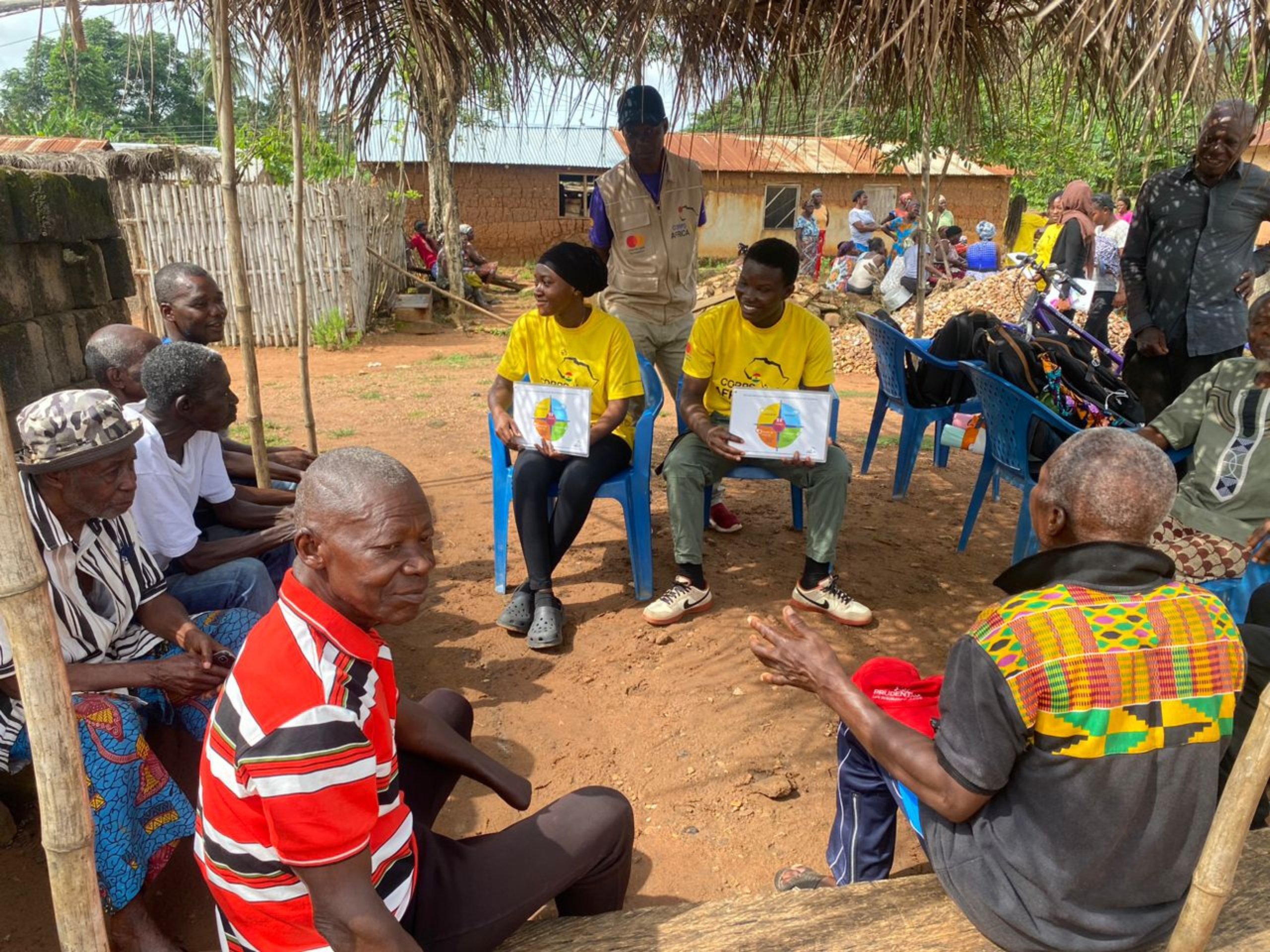During my time in the Kpale-Ga community as a CorpsAfrica Volunteer, I experienced firsthand the transformative power of conversation. Engaging with the community through dynamic and captivating discussions opened my eyes to the incredible potential of dialogue in fostering understanding and driving change.
One of the highlights of my service was organizing focus group discussions on “Dignified and Fulfilling Work.” Equipped with the advanced facilitation skills I had learned at IST-1, I was eager to delve deep into the community’s perspectives. I crafted thought-provoking questions and encouraged participants to share their stories, hopes, and challenges.
From the very first discussion, I was struck by the richness and diversity of the conversations. Each participant brought a unique viewpoint, shaped by their personal experiences and cultural background. Young adults shared their aspirations and the hurdles they faced in achieving them, while elders provided historical context and wisdom gained over the years. These exchanges painted a vivid picture of the community’s multifaceted nature and the varied paths its members had walked.
As I listened, I was reminded of the immense value of truly hearing others. The community members’ insights into what dignified and fulfilling work meant to them were both inspiring and eye-opening. They spoke of the pride that comes from contributing to one’s family and community, the importance of fair wages, and the desire for opportunities that align with their skills and passions. They also highlighted the barriers they faced, from limited access to education and resources to systemic challenges that stifled growth and opportunity.
These conversations were more than just exchanges of words; they were windows into the soul of my community. I learned about the resilience and creativity within the community, as well as the shared dreams and collective strength that bound them together. The dialogues illuminated the best ways to collaborate with the community, emphasizing the importance of building on local knowledge and fostering inclusive, participatory development.
The lessons I gained from these discussions have stayed with me. They have shaped my understanding of effective community engagement and reinforced my belief in the power of conversation as a tool for change. The community’s willingness to open up and share their experiences was a testament to the trust we built and the potential for future collaboration.
I am immensely grateful for the opportunity to facilitate these discussions and to learn from the people of Kpale-Ga. Their voices and stories have left an indelible mark on me, guiding my future efforts in community development. The power of conversation is indeed profound, and my time in Kpale-Ga has shown me just how transformative it can be.

